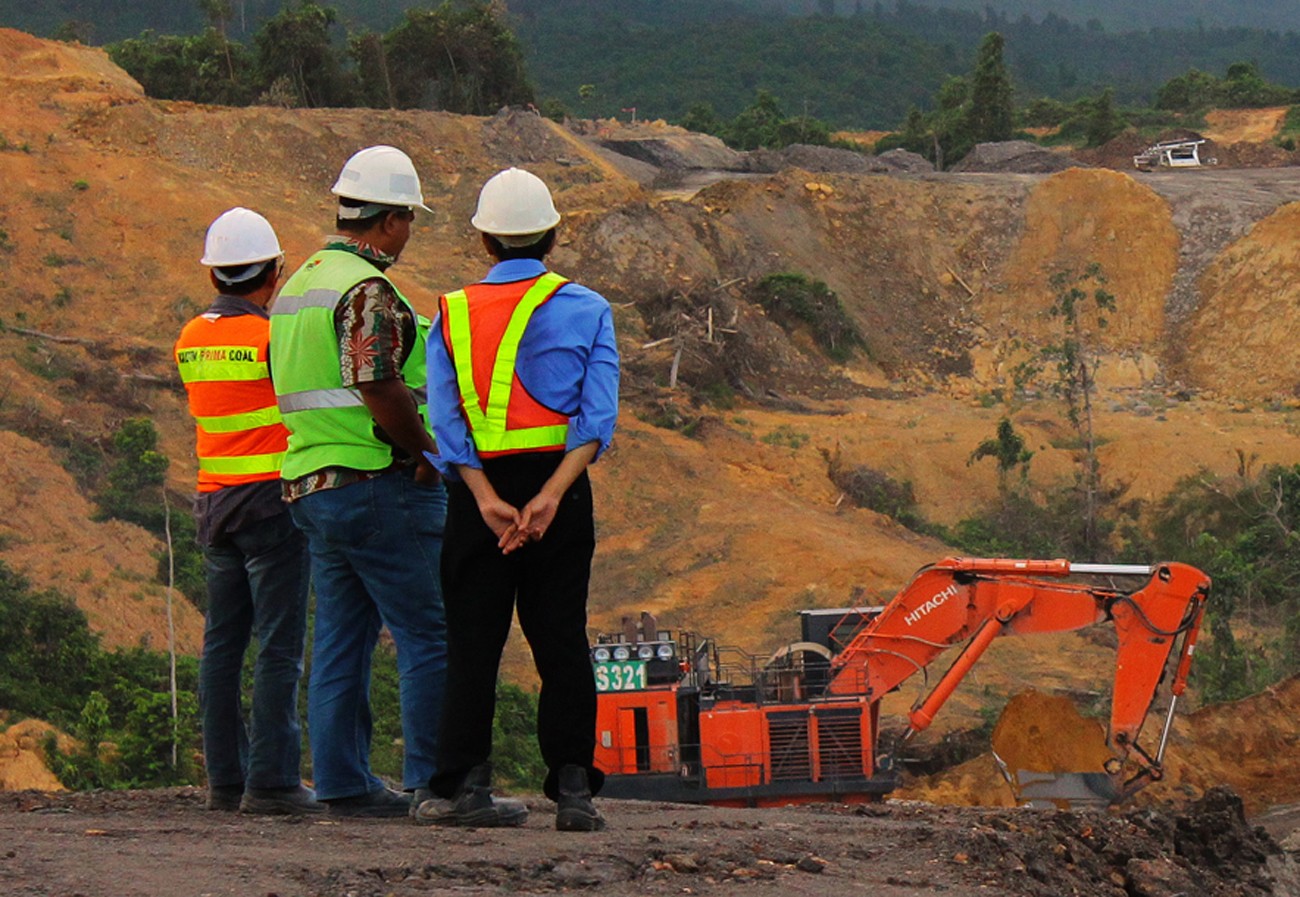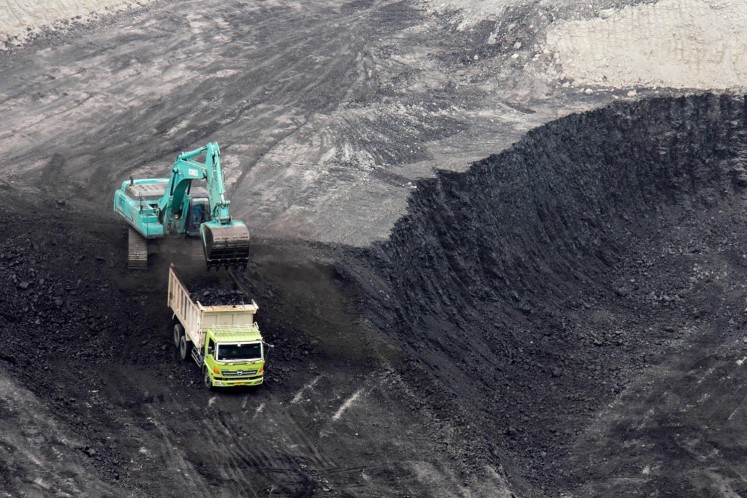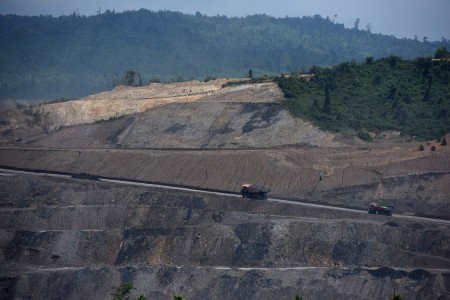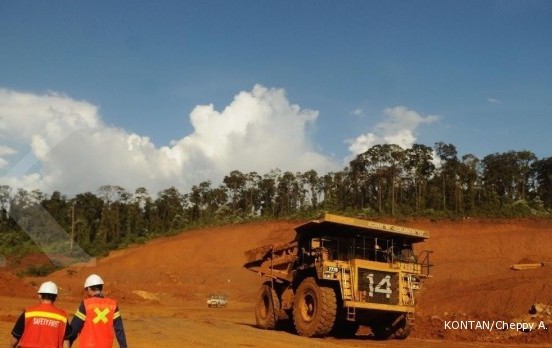Popular Reads
Top Results
Can't find what you're looking for?
View all search resultsPopular Reads
Top Results
Can't find what you're looking for?
View all search resultsMiners call for more government support amid rising problems
They mentioned three main hurdles in the mining industry right now: a lack of government attention on mining exploration, regulatory uncertainty and unfair fiscal treatment in terms of royalties for their commodities.
Change text size
Gift Premium Articles
to Anyone
A
group of top executives of foreign and local mining firms gathered at a forum held in a five-star hotel at the heart of Jakarta recently, expressing their wishes that the government should do more to help their industry as several problems were left unsolved.
Deputy Energy and Mineral Resources Minister Arcandra Tahar gave an opening speech at the forum, saying that he was open for comments about any problems.
However, the CEOs only conveyed their comments after Arcandra left the building.
They mentioned three main hurdles in the mining industry right now: a lack of government attention to mining exploration, regulatory uncertainty and unfair fiscal treatment in terms of royalties for their commodities.
Each year, the government earmarks state funding for mining exploration in the budget of the Energy and Mineral Resources Ministry’s Geology Agency.
However, data from the Indonesian Geologists Association (IAGI) show that the country saw a drop in the amount of overall expenditure for exploration of mineral commodities, such as gold and copper. The number was recorded at US$113 million in 2015, far lower than $497 million in 2012.
“We don’t have a big budget [for exploration from the government] […] we have to start discussing with the government to ask for an increase, not only rely on the company [budget],” said Frans Kesuma, president director of local mining contractor firm PT Pama Persada.
Coal is loaded into a haul truck at a coal mine in South Sumatra. (Shutterstock/Manggarr)Frans suggested that mining companies immediately discuss the issue with the government as relying mainly on the private sector for exploration was not sustainable, especially when a downturn hit the industry.
“If we only rely on [better] commodity prices [to pay for exploration activities], the budget surely will increase when the prices rise, but when the prices are down, the budget will automatically decrease as well,” he said.
Boosting exploration in the mining sector is important to ensure adequate reserves in the future. Government data show that Indonesia’s coal reserves, which stood at 26.2 billion tons as of March 2018, will deplete in about 50 years from now, assuming there is no new discovery of a reservoir.
Coal is expected to be the main energy source for Indonesia for over 30 years from now as the commodity will still be contributing more than 20 percent to the national energy mix.
Beyond coal, Indonesia still has big untapped resources of other minerals, such as nickel ore laterite, which will be an integral part in batteries for electric vehicles. The country had around 6.5 billion tons of reserves of the commodity in 2017.
Ratih Amri, executive director of mining think tank Mineral and Mining Industry Institute (MMII), acknowledged that research and development (R&D) was important for exploration activities, saying that the government was preparing an incentive to support that.
“I heard that there is a [proposed] presidential regulation on incentives for vocational training and R&D activities. And it could be followed with a ministerial regulation, like tax deductions for any money you [private mining companies] spend on R&D,” she told the audience at the forum.
MMII is working under state mining holding company PT Indonesia Asahan Aluminium (Inalum), which officially became a major shareholder of gold and copper miner Freeport Indonesia in December 2018.
Heavy equipment and trucks pass through a coal mine in East Kalimantan. (Antara/Wahyu Putro A)Exploration activities in mining remained few compared to other energy sectors, such as oil and gas, due to a number of problems and high level of complexity, said Fahmy Radhi, an energy and economic observer at Gadjah Mada University.
“There are three key barriers that still hamper investment for exploration in the mining sector, namely declining mining resources, regulatory hassle and resistance from environmentalists,” he told The Jakarta Post recently on a separate occasion.
The government said earlier this year that the investment target for the mineral and coal sector for 2019 was around $6 billion, relatively flat compared to a year earlier. It will also highly depend on the success of mining auctions, which will involve at least 14 mining sites.
Regarding the issue of regulatory uncertainty, executives of mining companies said they often had to deal with problems surrounding forestry-related permits.
Publicly listed miner Bumi Resources Minerals, for example, has always struggled when dealing with forestry-related permits. Its director Suseno Kramadibrata likened the process to struggles of “blood, sweat and tears”.
Workers monitor a mining area of nickel producer PT Vale Indonesia. (KONTAN/Cheppy A Muchlis)As for fiscal treatment, Vale Indonesia president director Nicolas Kanter criticized the structure of royalties paid by his company for processed nickel and nickel ore. He argued that nickel miners such as his company were not treated fairly, and that the policy betrayed the government’s mission to develop the downstream industry in the mineral sector.
Nicolas hinted that setting a lower royalty rate for nickel ores compared to processed ones would not help create added value for the commodity.
Government Regulation No. 9/2012 on types and tariffs for non-tax revenues under the Energy and Mineral Resources Ministry stipulates that each sale of nickel ore per ton is subject to 5 percent in royalties.
Each ton of processed nickel, namely nickel matte and ferro nickel, is subject to 4 percent in royalties from each sale, only 1 percent lower than the rate for ores or unprocessed nickels.
After a previous renegotiation with the government, Vale Indonesia is required to pay 2 percent in royalties.
“Based on the negotiation [with the government], we only pay 2 percent [for processed nickels], while for the ores, we pay 5 percent. So, does our country really encourage the [creation] of value-added [products]?”
Another blow for processed nickel occurred in 2017, when the government decided to scrap the ban on ore exports, including nickel ore. The ban was previously implemented to protect the products of mineral downstream industries.













